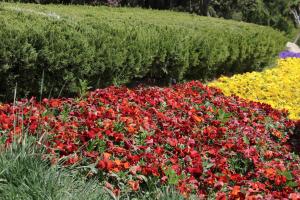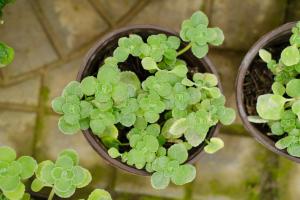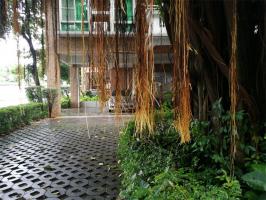Are Regular Light Bulbs Good for Plants?
Regular light bulbs are the incandescent bulbs that have been commonly used in households for decades. They are inexpensive and easy to find in most stores, but are they good for plants? The answer is both yes and no.
The Pros of Regular Light Bulbs for Plants
Regular light bulbs can provide some light to plants that may be beneficial to their growth. Incandescent bulbs emit some infrared radiation that can be used by plants for photosynthesis. They also emit a warmer spectrum of light that may be beneficial for some plants.
Another advantage of regular light bulbs is that they can be used to supplement natural sunlight. During the winter months, when sunlight is weak, plants may not receive enough light to grow properly. Supplemental lighting with regular bulbs can help to make up for the lack of sunlight.
The Cons of Regular Light Bulbs for Plants
Regular light bulbs also have some disadvantages when it comes to plant growth. One of the main drawbacks is that they emit a great deal of heat. This heat can be harmful to plants if they are placed too close to the bulb or if the bulb is left on for too long. The heat can cause the plants to dry out and wilt, which can be fatal in some cases.
Another disadvantage of regular light bulbs is that they emit a limited spectrum of light. This spectrum may not be broad enough to provide all the light that plants need to grow properly. Plants require a full spectrum of light that includes all colors, from blue to red. Regular bulbs emit mostly yellow and red light, and very little blue.
Alternatives to Regular Light Bulbs for Plants
If you are looking for a more effective lighting option for your plants, there are alternatives to regular light bulbs. One popular option is fluorescent lighting. Fluorescent bulbs emit a broad spectrum of light and do not produce as much heat as regular bulbs. They are also energy-efficient and can last longer.
Another alternative is LED lighting. LED bulbs also emit a broad spectrum of light and do not produce as much heat as regular bulbs. They are even more energy-efficient than fluorescent bulbs and can last even longer. LED bulbs are a bit more expensive than regular bulbs, but they will save you money in the long run due to their energy efficiency and long life.
Conclusion
In conclusion, regular light bulbs can be used for plants, but they are not the best option. They emit too much heat and a limited spectrum of light, which can be harmful to plants. Fluorescent and LED lighting are better options for providing the full spectrum of light that plants need to grow properly while also minimizing heat output. So, while regular light bulbs may work in a pinch, they are not the best choice for your plants' long-term growth and health.

 how many times do yo...
how many times do yo... how many planted tre...
how many planted tre... how many pine trees ...
how many pine trees ... how many pecan trees...
how many pecan trees... how many plants comp...
how many plants comp... how many plants can ...
how many plants can ... how many plants and ...
how many plants and ... how many pepper plan...
how many pepper plan...
































